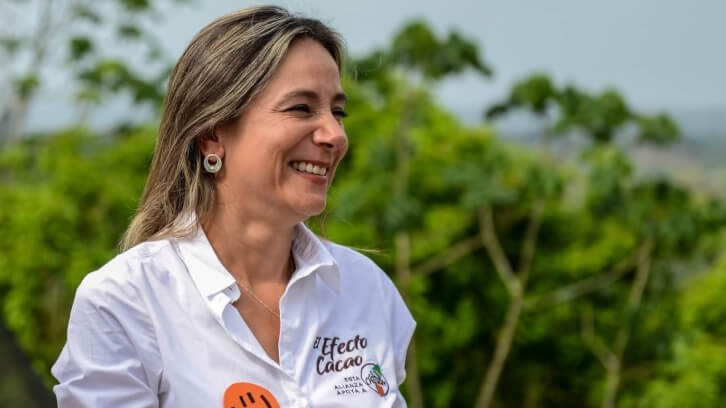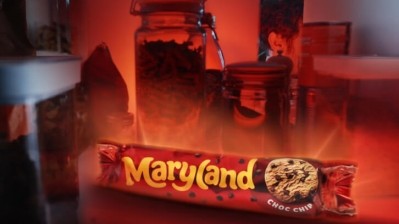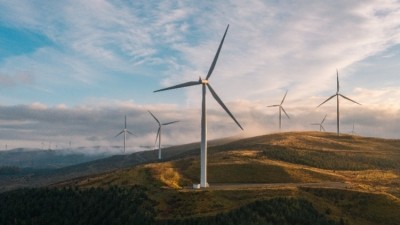All in a Day's Work
Julia Ocampo, Luker Chocolate, tells us about her role in food and drink

Name
Julia Ocampo
Age
45 years
Job title
VP cacao sourcing & sustainability
Company and location
Luker Chocolate – Bogotá, Colombia
Education
I started out with an undergraduate degree in Industrial Engineering from the National University of Colombia, and later obtained a master’s degree in Sustainable Development from Versailles University, France.
Favourite food/drink
I'll always reach for a Colombian hot chocolate in the morning – it’s a cultural tradition that’s now engrained in my daily routine. Many Colombian children have a cup before school; it provides a huge energy boost and warmth when you’re up in the chilly Andes Mountains. Traditionally, it’s made with 100% cacao and no added ingredients, but I like a little sugar in mine!
What inspired you to enter F&B?
My career working with commodities began with coffee, before quickly moving across into cocoa.
As an industrial engineer my dream has always been to add value to our agricultural system. I knew I wanted to work with farmers, helping to both transform their product and the community that produces it. When I first got into the industry, not many people understood the concept of sustainable development. But now I can see the transformation happening before my eyes.
Tell us about your role
My role oversees both cocoa sourcing and sustainability within our value chain. I manage a team of 25 – all working in different regions across the country. We work hand-in-hand with cocoa producers, associations, farmers and communities, on maintaining a supply of cocoa and ensuring best practice when it comes to sustainability and quality. My role impacts not only the product itself, but also the environment and communities in which we operate.
What does a typical day look like?
For me, there really is no such thing as a ‘typical day’. Every day is different: one day I might be travelling across the countryside (by boat, car, donkey, horses – you name it), visiting the cocoa associations, farmers and communities that form part of our collaborative sustainability plan, The Chocolate Dream. Here, I’ll chat to locals about how we can provide support – both practical and theoretical – to ensure their crop and community is thriving. The next day I might be meeting with our logistics team or marketing teams to discuss how we can optimise our operations. The next, I’ll be presenting to international partners, universities, foundations, local governments or clients who’d like to invest in the well-being of cocoa-producing communities. I particularly enjoy speaking to young people about social innovation; I often host motivational talks and short courses to inspire students to engage in the agro industries.
Although no two days are the same, my day-to-day work is always connected by the ‘golden thread’ of sustainability. This is led by our Creating Shared Value model, where we directly involve local populations in forming solutions to various problems.
How did you get to where you are today?
Truthfully, through lots of hard work and (very!) early mornings.
I started my career working with the United Nations – UNIDO, where I got to know the Cleaner Production Centres. Inspired by that, I have always been guided by the Sustainable Development Goals (SDGs) and how they can develop Colombian society for the better. I also developed strong people skills so I could converse with various communities, often in different languages, to form mutually beneficial relationships and develop the country through collaboration.
I realised early on that developing countries have to work for themselves. Other countries’ solutions don’t necessarily apply here, as there isn’t a one-size-fits-all approach. After failing a few times, I realised that I needed to involve local communities when forming sustainable solutions. It was then that I discovered sustainability is a culture, not an end point; it’s something you have to uphold in every action, all the time.
When you’re having a bad day, what cheers you up?
The smile of a cocoa farmer. The farmers in Colombia have small amounts of land (often between 2 or 3 hectares), and they work tremendously hard. It’s because of this that their smiles are always so powerful and inspiring.
What’s your favourite part about the food sector?
When I bring a finished chocolate product back to the farmer that cultivated the cocoa, I love seeing the amazement on their faces. They genuinely think it’s unbelievable that Luker, a local Colombian company, has the technology to make the highest quality products.
If you could change one thing about the F&B sector, what would it be?
The price instability of the soft commodity market. As a manufacturer, most of the prices aren’t in our hands – they’re dictated by the international stock exchange. The price fluctuations can impact and disappoint farmers, often without much explanation.
What’s next for you/what’s the dream?
My dream is for Colombia to grow the number of prosperous farms, for famers’ income to significantly increase and for manufacturers – on a global scale – to understand the needs of farmers and importance of tailoring solutions to their individual needs. I hope that soon, all cocoa-producing communities will thrive, and there truly will be peace in the cocoa industry.


















